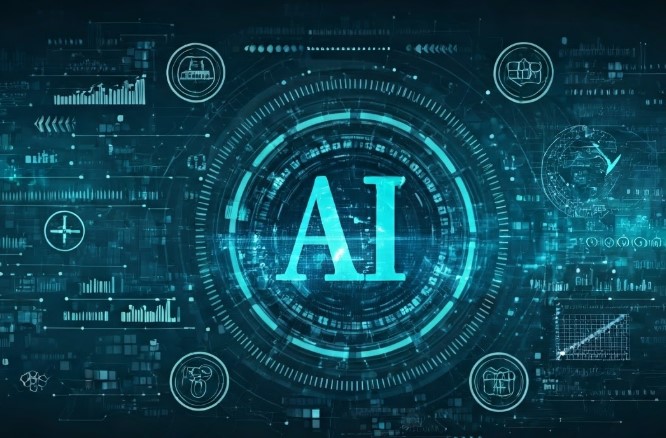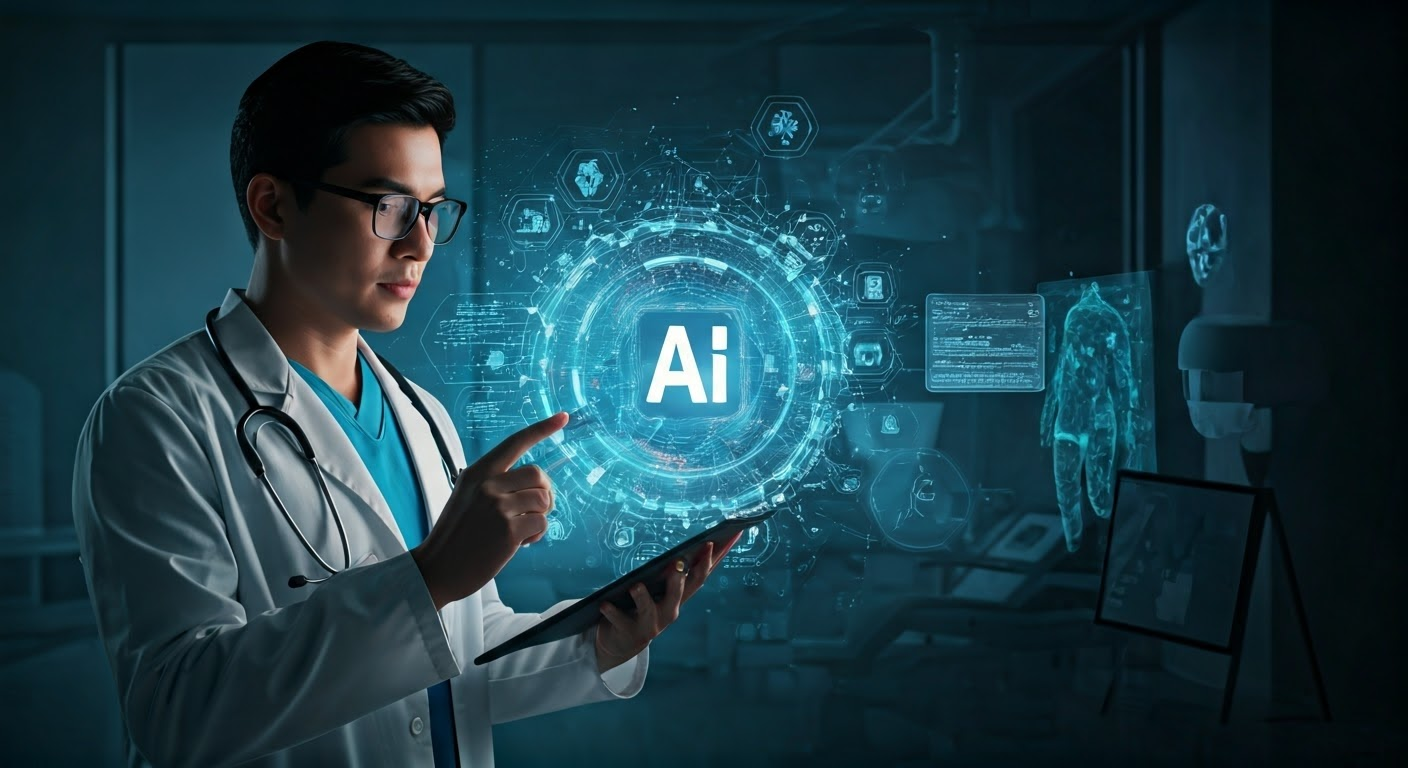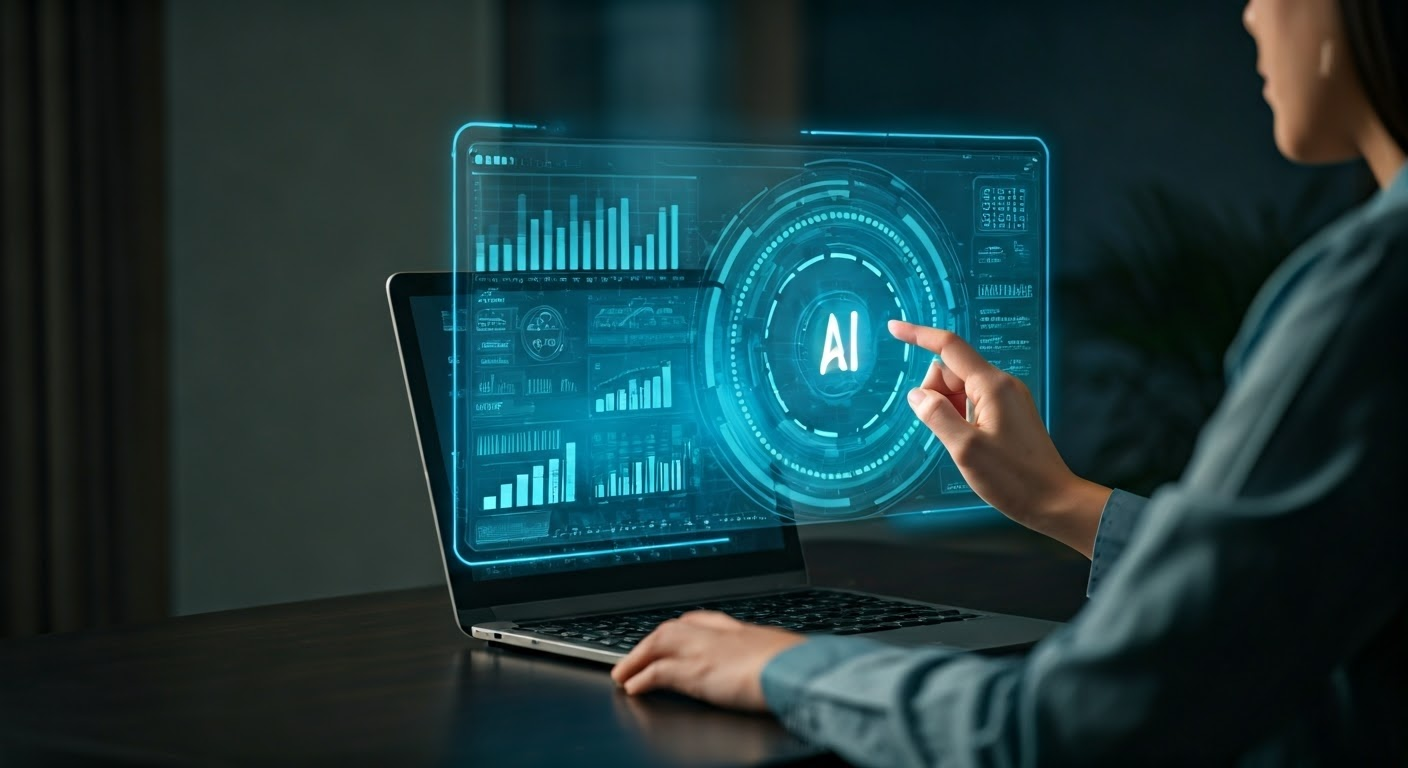January 29, 2025
Ultimate Guide: Top AI Business Ideas 2025 for Entrepreneurs

Greg Kopyltsov
Founder
ai business ideas 2025


Artificial intelligence, particularly generative AI, is rapidly transforming industries, creating a wave of unprecedented business opportunities. Market trends indicate a surge in AI adoption, with projections soaring to dizzying heights. This presents a golden opportunity for forward-thinking entrepreneurs to capitalize on this burgeoning market and establish themselves as pioneers in the AI revolution. From healthcare to finance, the potential applications of AI, including generative AI, are limitless, promising innovative solutions to complex challenges.
Aspiring business owners eager to ride the wave of artificial intelligence are often on the lookout for fresh, innovative ventures. The key is identifying areas where AI can be seamlessly integrated to address existing customer needs or enhance efficiency, ultimately leading to a profitable business. The intersection of AI and various sectors offers a goldmine of opportunities.
Imagine a world in the United States where AI personalizes healthcare, optimizes financial decisions, and automates mundane tasks. This is not a distant future but a reality that entrepreneurs are actively shaping. By 2025, these AI business ideas are poised to redefine industries and offer cutting-edge solutions to everyday challenges.
The healthcare industry is ripe for disruption, and AI is leading the charge. Virtual health assistants are transforming the way patients interact with healthcare providers. Imagine AI-powered platforms that schedule appointments, provide medication reminders, and even offer basic medical advice, making healthcare more accessible and convenient.
But AI's potential in healthcare extends far beyond virtual assistants. Predictive analytics is another game-changer. By analyzing vast amounts of patient data, AI algorithms can identify patterns and predict potential health risks. This empowers healthcare providers to make proactive decisions, enabling early interventions and potentially saving lives.
From personalized treatment plans to drug discovery and AI-powered diagnostics, the possibilities are endless. As AI continues to evolve, we can expect even more groundbreaking applications in the healthcare industry, improving patient outcomes and revolutionizing the way healthcare is delivered.
The automotive industry is on the cusp of a revolution, driven by the rapid advancements in artificial intelligence. Autonomous vehicles, once a futuristic concept, are now becoming a reality, powered by sophisticated machine learning algorithms. These algorithms enable vehicles to perceive their surroundings, make decisions, and navigate roads without human intervention.
One of the primary focuses in this field is ensuring the safety of these self-driving cars. AI plays a critical role here, constantly learning from vast amounts of data to improve perception, decision-making, and reaction time. As these technologies mature, we can expect to see a significant reduction in accidents caused by human error.
Beyond safety, autonomous vehicles promise to transform the way we commute, deliver goods, and manage transportation infrastructure. As the technology continues to evolve, the possibilities for innovation and disruption in the automotive industry are limitless.
In the realm of finance, where numbers reign supreme, AI is emerging as a powerful tool to navigate the complexities of financial planning and decision-making. AI models, trained on historical market data, including historical data and economic indicators, can analyze individual financial profiles and offer personalized recommendations for investments, savings, and debt management.
These AI-powered financial advisors can process vast amounts of information in real-time, identifying trends and potential investment opportunities that might otherwise go unnoticed. This empowers individuals to make informed financial decisions, optimize their portfolios, and potentially achieve their financial goals more effectively.
As AI in financial services continues to evolve, we can anticipate a future where personalized financial advice is readily available, democratizing access to sophisticated financial planning tools and strategies.
E-commerce businesses are constantly striving to enhance customer support and streamline the shopping experience. AI-powered chatbots offer a significant opportunity to achieve both. These chatbots can handle customer inquiries, provide product recommendations, and even process orders, all while offering personalized interactions that enhance the user experience.
Trained on a massive dataset of customer interactions, AI chatbots can understand natural language processing and respond to queries conversationally. This frees up human customer service agents to focus on more complex issues while ensuring that customers receive timely and helpful support.
Moreover, AI chatbots can analyze customer data to provide personalized recommendations and offers, increasing customer engagement and driving sales. As chatbot technology continues to advance, we can expect even more sophisticated and human-like interactions, further blurring the lines between human and AI-driven customer service.
With increasing cyber threats, businesses and individuals are more concerned than ever about cybersecurity and data privacy. AI is proving to be an invaluable ally in this fight, offering advanced threat detection and prevention capabilities that surpass traditional security measures.
AI-powered cybersecurity systems can analyze network traffic in real time, identifying and flagging suspicious activities that might indicate an attack . This proactive approach allows businesses to respond to threats before they escalate, preventing data breaches and minimizing potential damage.
Furthermore, AI can strengthen data privacy by identifying and mitigating vulnerabilities, ensuring that sensitive information remains protected. As cyber threats continue to evolve, so too will AI-driven cybersecurity solutions, offering a robust line of defense in an increasingly complex digital landscape.
As content marketing becomes increasingly competitive, businesses are seeking innovative ways to create engaging content that resonates with their target audience. AI is emerging as a powerful tool in the content creator's arsenal, offering capabilities that streamline content creation and enhance its impact.
AI tools can:
By analyzing data on what kind of content performs well, AI algorithms can help tailor content to specific audiences, increasing its relevance and reach. AI can also personalize content experiences by analyzing user preferences and behaviors. This means that users are more likely to engage with content that aligns with their interests, leading to higher engagement rates and potentially driving conversions. As AI technology advances, its role in content creation and marketing is only set to grow, redefining how businesses connect with their audiences in the digital age.
The agriculture industry is undergoing a technological transformation with the emergence of smart agriculture, and AI is playing a pivotal role. By harnessing the power of AI analytics, farmers can optimize their yields, reduce waste, and make more informed decisions about their crops.
AI-powered systems can analyze data from various sources, such as sensors in the field, weather patterns, and historical crop yields, to provide insights into soil conditions, optimal planting times, and potential risks. This allows farmers to adjust their practices in real time, optimizing resource allocation, and maximizing their harvests.
Moreover, AI can play a role in automating tasks such as irrigation and pest control, further increasing efficiency and reducing labor costs. As the global population grows and the demand for food increases, AI-powered smart agriculture will become essential in ensuring food security.
The education sector is embracing technology like never before, and AI is at the forefront of this transformation. E-learning platforms are incorporating AI to personalize the learning experience, making it more engaging and effective for students of all levels.
AI algorithms can analyze a student's learning patterns, strengths, and weaknesses to tailor the curriculum to their individual needs. This personalized approach ensures that students learn at their own pace, focusing on areas where they need the most support.
Moreover, AI can automate administrative tasks, freeing up educators to spend more time interacting with students and providing individualized attention. As AI in educational technology continues to mature, we can look forward to more intelligent and adaptable learning platforms that cater to the unique needs of each learner.
The real estate industry, often reliant on traditional methods, is witnessing a technological shift with the introduction of AI. Property valuation, a critical aspect of real estate transactions, is becoming more accurate and efficient with AI models.
These models consider a multitude of factors, including location, property features, market trends, and even neighborhood amenities, to determine a property's fair market value. By analyzing vast amounts of data, AI algorithms can identify patterns and correlations that might not be apparent to human appraisers, leading to more precise valuations.
Beyond valuation, AI is streamlining various aspects of real estate management, from tenant screening and rent collection to property maintenance predictions. This not only benefits property owners and managers but also enhances the experience for tenants, creating a more efficient and transparent real estate ecosystem.
The globalized nature of modern business means that supply chain management and logistics play a crucial role in ensuring the smooth flow of goods and services. AI is transforming this field, offering optimization possibilities that were previously unimaginable.
AI-powered systems can analyze real-time data from various points in the supply chain, such as:
Data Point
Description
Warehouse inventory levels
Tracks the number of available products.
Transportation networks
Monitors traffic flow, weather conditions, and delays.
Customer demand fluctuations
Predicts changes in demand for products.
This allows businesses to anticipate potential bottlenecks, optimize delivery routes, and proactively adjust inventory levels, minimizing delays and reducing costs. AI is bringing a new level of efficiency and responsiveness to supply chain management, making businesses more agile and resilient in today's dynamic global market.

The healthcare industry stands on the brink of a transformative revolution powered by artificial intelligence. AI is poised to reshape how we diagnose, treat, and manage diseases, paving the way for a future of proactive and personalized healthcare.
Imagine a world where diseases are diagnosed earlier, treatments are tailored to individual patients, and healthcare resources are used more efficiently. This is the promise of AI in healthcare, and it's a promise that is rapidly becoming a reality.
Predictive diagnostics, fueled by AI and big data, is revolutionizing healthcare by identifying potential health risks before they escalate into serious conditions. Imagine a future where deep learning algorithms analyze your medical history, genetic information, and lifestyle choices to predict your likelihood of developing certain diseases.
With this knowledge, healthcare providers can intervene earlier, offering preventive measures, lifestyle adjustments, or personalized screenings to mitigate the risks. Early detection is often crucial for successful treatment, and AI's ability to sift through mountains of data and identify subtle patterns that humans might miss is invaluable.
From predicting the onset of chronic diseases like diabetes and heart conditions to identifying individuals at higher risk of certain cancers, AI-powered predictive diagnostics holds the potential to save lives and improve patient outcomes dramatically.
Imagine a world where patients have 24/7 access to personalized healthcare guidance, right from their smartphones. AI technology is making this a reality with the rise of virtual health assistants. These AI-powered companions are transforming the patient care landscape by providing convenient and accessible support.
From answering basic medical questions to providing medication reminders and scheduling appointments, virtual health assistants streamline communication between patients and healthcare providers. They act as a readily available resource, offering patients peace of mind and empowering them to take charge of their health.
But that's not all. AI virtual assistants can also monitor a patient's condition, track their symptoms, and alert healthcare providers to the growing demand for any concerning changes. This allows for more proactive and personalized care, ensuring that patients receive timely interventions when they need them most.

The transportation industry, from logistics and supply chain management to personal vehicles, is undergoing a profound transformation with artificial intelligence at the helm. AI is driving efficiency, safety, and sustainability, paving the way for a future of smarter and more connected transportation systems.
Self-driving vehicles, once a futuristic fantasy, are inching closer to reality, promising to redefine our relationship with transportation. But the impact of AI extends far beyond autonomous vehicles, optimizing routes, streamlining logistics, and enhancing safety across the board.
Autonomous vehicles, powered by artificial intelligence, are poised to revolutionize transportation by enhancing both safety and efficiency on our roadways. Imagine a future where accidents caused by human error are drastically reduced, and traffic flows smoothly without the need for traffic lights.
AI algorithms are the brains behind these self-driving cars, processing vast amounts of data from sensors, cameras, and GPS systems to perceive their surroundings, make decisions, and navigate roads without human intervention. The safety implications are immense, with autonomous vehicles promising to eliminate drunk driving accidents, reduce traffic violations, and improve overall road safety.
Beyond safety, autonomous vehicles hold the potential to increase fuel efficiency by optimizing acceleration, braking, and speed. This not only reduces fuel consumption but also minimizes emissions, making our transportation systems more sustainable.
Traffic congestion and inefficient transportation systems are challenges faced by cities worldwide. Artificial intelligence is emerging as a game-changer in urban planning and traffic management, offering innovative solutions to alleviate congestion and optimize traffic flow.
AI-powered traffic management systems can analyze real-time data from traffic cameras, sensors, and GPS devices to monitor traffic conditions, identify bottlenecks, and adjust traffic signals dynamically to alleviate congestion. This dynamic approach to traffic management can significantly reduce travel times, improve fuel efficiency, and lower emissions.
Furthermore, AI can assist in urban planning by analyzing transportation patterns and predicting future traffic demands. City planners can leverage these insights to design more efficient road networks, optimize public transportation routes, and create smarter, more sustainable cities.

Imagine a world where managing your finances is effortless and personalized. AI is rapidly transforming the financial industry, making this vision a reality with the emergence of AI financial advisors. These digital financial gurus are democratizing access to sophisticated financial advice and empowering individuals to make smarter financial decisions.
From creating personalized investment strategies to automating savings goals and managing debt, AI financial advisors offer a range of services that cater to diverse financial needs. These robo-advisors leverage cutting-edge algorithms and machine learning to provide tailored financial guidance based on your unique financial situation.
Gone are the days of one-size-fits-all investment strategies. AI financial advisors are ushering in a new era of personalized investment, tailoring investment portfolios to individual risk tolerance, financial goals, and market conditions.
These AI-powered advisors analyze your financial situation, investment timeline, and risk appetite to craft a personalized investment strategy that aligns with your unique needs. They continuously monitor market trends, economic indicators, and your portfolio's performance to make adjustments as needed, ensuring that your investments stay on track.
Whether you're a seasoned investor or just starting, AI financial advisors offer a convenient and accessible way to create a diversified portfolio, manage risk, and potentially maximize your returns. As AI technology advances, we can expect even more sophisticated and personalized investment strategies that cater to a wide range of financial goals.
Credit scoring, a cornerstone of the financial system, is undergoing a transformative shift with the application of AI algorithms. Traditional credit scoring methods often rely on limited data points, potentially excluding individuals with limited credit history or unfairly penalizing those with minor financial missteps.
AI algorithms, on the other hand, can analyze a wider range of data, including income, spending habits, and even online behavior, to assess creditworthiness more comprehensively and fairly. This allows financial institutions to make more informed lending decisions, expanding access to credit for individuals and small businesses that might have been overlooked by traditional systems.
Furthermore, AI-powered credit scoring models can continually learn and adapt as new data becomes available, providing a more dynamic and accurate assessment of credit risk. This benefits both borrowers and lenders, creating a fairer and more inclusive financial ecosystem.
In the competitive landscape of e-commerce and retail, delivering a seamless and personalized customer experience is paramount to success. Artificial intelligence is transforming how businesses interact with their customers, offering personalized recommendations, optimizing inventory management, and creating a more engaging and rewarding shopping journey.
Imagine a world where online stores anticipate your needs, offering product suggestions tailored to your preferences, and where physical stores provide a frictionless checkout experience. This is the power of AI in e-commerce and retail, where technology enhances the customer experience at every touchpoint.
AI technology is revolutionizing the customer experience by enabling businesses to provide personalized shopping experiences that cater to individual preferences and needs. Imagine logging into your favorite online store and being greeted with product recommendations tailored to your browsing history, past purchases, and even your style preferences.
AI algorithms can analyze vast amounts of customer data to create detailed customer profiles, understanding their likes, dislikes, and purchase patterns. This enables businesses to deliver a highly relevant and personalized shopping experience, suggesting products that customers are more likely to be interested in.
This personalized approach not only enhances the customer experience but also benefits businesses by increasing customer engagement, driving sales, and fostering brand loyalty. As AI technology advances, we can expect even more sophisticated personalization capabilities that create truly unique and rewarding shopping experiences.
Managing inventory efficiently is crucial for businesses in the e-commerce and retail sectors. Maintaining optimal stock levels, minimizing waste, and ensuring timely replenishment can make or break a business. Artificial intelligence is transforming inventory management by providing valuable insights that optimize stock levels, reduce costs, and improve overall operational efficiency.
AI algorithms can analyze historical sales data, track current inventory levels, monitor market trends, and even consider external factors like weather patterns and seasonality to predict future demand. This allows businesses to anticipate inventory needs and make data-driven decisions about when and how much to order, minimizing the risk of stockouts or overstock situations.
Beyond inventory optimization, AI insights can also be leveraged to inform product design and development. By analyzing customer preferences, purchase patterns, and feedback, AI can help businesses identify unmet customer needs and develop products that are more likely to resonate with their target market.

As our reliance on technology deepens and cyber threats become more sophisticated, the need for robust cybersecurity measures is more critical than ever. Artificial intelligence is emerging as both a powerful tool and a potential threat in the realm of cybersecurity, offering both innovative solutions and raising new challenges.
On the one hand, AI enhances threat detection and prevention capabilities, strengthening our defenses against cyberattacks. On the other hand, malicious actors can leverage AI's capabilities to develop more sophisticated attacks, creating an ongoing arms race between defenders and attackers in the digital realm.
AI systems are revolutionizing threat detection in cybersecurity, offering capabilities that surpass traditional security measures. Unlike rule-based security systems, which rely on predefined patterns to identify threats, AI systems can learn and adapt to new and emerging threats in real-time.
AI algorithms can analyze vast amounts of data from network traffic, system logs, and user behavior, identifying anomalies and patterns that might indicate malicious activity. This proactive approach to threat detection allows organizations to identify and respond to attacks before they can inflict significant damage.
Moreover, AI systems can learn from past attacks, becoming more intelligent and effective at detecting and preventing similar threats in the future. This continuous learning and adaptation capability makes AI an invaluable asset in the ongoing fight against cybercrime.
In an era of increasing data breaches and privacy concerns, AI-driven protocols are emerging as a critical component of cybersecurity strategies, offering innovative ways to safeguard sensitive information and enhance data privacy.
AI algorithms can analyze data usage patterns, identify potential vulnerabilities, and enforce access controls to ensure that only authorized individuals can access sensitive information. This granular approach to data access management strengthens data security and reduces the risk of unauthorized access or data leaks.
Furthermore, AI can assist in data collection, anonymization, and de-identification techniques, protecting individual privacy while still allowing organizations to utilize data for analysis and insights. As data privacy regulations become more stringent, AI will play an increasingly vital role in helping organizations comply with these regulations and maintain the trust of their users.
Artificial intelligence is revolutionizing the content and marketing landscape, offering businesses innovative ways to create compelling content, reach their target audience, and optimize their marketing efforts. From generating engaging social media posts to crafting personalized email campaigns, an AI agent is transforming how marketers connect with their audience in the digital age.
Imagine a world where content creation is automated, marketing campaigns are tailored to individual preferences, and customer insights are readily available at your fingertips. This is the promise of AI in content and marketing, where technology empowers businesses to cut through the noise and deliver engaging experiences that resonate with their target audience.
In the world of content marketing, standing out from the crowd is paramount. AI-driven content creation tools are empowering businesses to elevate their content creation process, generating engaging content that captures attention and drives results. From crafting catchy headlines to generating blog post ideas, AI is simplifying the life of content creators while enhancing the quality and effectiveness of their work.
AI tools can analyze vast amounts of data to understand what kind of content resonates with specific audiences, identifying trending topics, the way people prefer optimal content lengths, and even the best time to post on different social media platforms. This data-driven approach to content creation ensures that businesses are creating content that is both relevant and engaging, maximizing its reach and impact.
Furthermore, AI can assist in tailoring content to different stages of the buyer journey, ensuring that businesses are delivering the right message at the right time. Whether it's crafting blog posts to educate and inform, creating social media content to entertain and engage, or writing compelling copy for email campaigns, AI tools are becoming indispensable assets for content creators.
Gone are the days of mass marketing campaigns that reach a broad audience with generic messaging. AI capabilities are empowering businesses to target their marketing efforts with laser precision, delivering personalized messages to the right customer segments at the right time. This data-driven approach to marketing ensures that marketing budgets are used more effectively, maximizing return on investment.
AI algorithms can analyze customer data, including demographics, purchase history, online behavior, and interactions with previous marketing campaigns, to create detailed customer segments based on shared characteristics and preferences. This allows marketers to tailor their messaging and offers to specific groups, increasing the relevance of marketing communications and improving the chances of conversion.
Moreover, AI can provide valuable customer insights that go beyond traditional analytics. By analyzing customer sentiment on social media, identifying patterns in customer behavior feedback, and understanding customer preferences, AI can unlock hidden customer insights that inform product development, marketing strategies, and even customer service approaches.
KeywordSearch has an AI Audience builder that helps you create the best ad audiences for YouTube & Google ads in seconds. In a just a few clicks, our AI algorithm analyzes your business, audience data, uncovers hidden patterns, and identifies the most relevant and high-performing audiences for your Google & YouTube Ad campaigns.
You can also use KeywordSearch to Discover the Best Keywords to rank your YouTube Videos, Websites with SEO & Even Discover Keywords for Google & YouTube Ads.
If you’re looking to SuperCharge Your Ad Audiences with AI - Sign up for KeywordSearch.com for a 5 Day Free Trial Today!
The future of business is intertwined with AI innovation. From healthcare to finance, AI is revolutionizing industries. Entrepreneurs aspiring to lead in 2025 must explore AI-driven ventures like healthcare solutions, autonomous vehicles, and AI-powered content creation. Stay ahead by embracing AI financial advisors, personalized e-commerce experiences, and advanced cybersecurity services. The potential for growth and impact is immense. Are you ready to pioneer the AI wave? Learn more about these cutting-edge AI business ideas and start shaping the future today!
The AI impact on the business landscape by 2025 will be significant. Expect to see AI driving efficiency in business operations, creating new opportunities, and influencing market trends.
Begin with defining your startup ideas and conducting comprehensive market research. Then, choose a suitable business model, secure funding, and focus on software development as you create a detailed business plan.
Absolutely! AI integration offers small businesses a competitive advantage. It unlocks cost savings by automating tasks and delivers efficiency improvements that boost productivity and streamline operations.